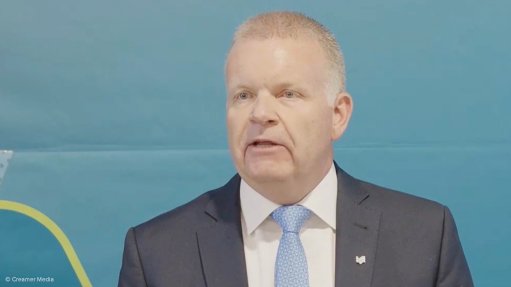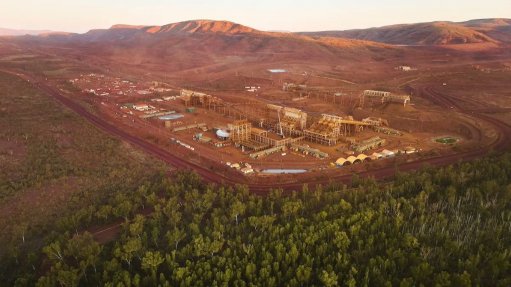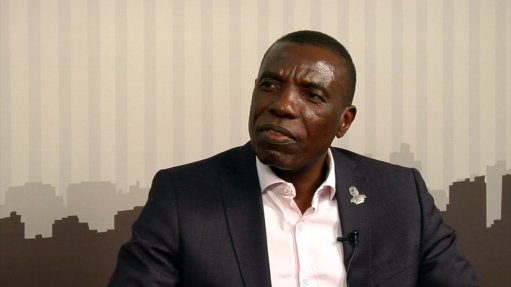Bring forward policy review, drop luxury tax on new-energy vehicles – Toyota CEO
The midterm review of the second iteration of government’s Automotive Production and Development Programme (APDP) is scheduled for 2026, but the local automotive industry wants to bring this forward, says Toyota South Africa Motors CEO Andrew Kirby.
The APDP 2 provides duty and investment support to local component and vehicle manufacturers, in an effort to boost globally competitive local manufacture and high-volume exports.
Kirby says the local auto industry would like to start setting up a series of engagements with the Department of Trade, Industry and Competition as soon as possible.
Kirby’s call to action comes amid a rapid global shift to new-energy vehicles (NEVs) – hybrids, plug-in hybrids and battery electric vehicles (BEVs) – as well as the exponential growth in sales of imported Chinese brands, including in South Africa.
The domestic market is also seeing an influx of imported vehicles from budget carmakers in India.
This shift is happening as NEV sales in the South African market are growing painfully slowly, while local automakers have to accommodate export markets that are increasingly demanding NEV products.
“We all need to acknowledge that this is not business as usual,” says Kirby.
Continuing as usual is likely to lead to declines in vehicle and component manufacturing volumes as well as new-vehicle sales in South Africa, he notes.
Kirby says the APDP 2 and its partner document, the South African Automotive Masterplan, developed in 2018, involved some “good, thorough thinking, but the world has changed”.
“I do think the foundation of APDP 2 should remain as it is, but we need to add on specific initiatives to make it fit for purpose.
“We can, for example, target e-axles and say that is what we will make in South Africa.
“We need to be a lot more selective about which parts of the value chain we really want to compete in.
“APDP 2 is a really well thought-through policy instrument, but we also need to have some selective policies that target where we want to be,” adds Kirby.
“There is no reason why we can’t say let’s support particular components and vehicles in very targeted ways that will lead to the localisation [of parts].
“There is a good opportunity to do that. But the longer we take to make some of these decisions, the harder it is going to be to catch up with the rest of the world.”
One such new policy measure should involve stimulating NEV sales in the domestic market, otherwise “most of these vehicles will come through from China”, which means South Africa will lose the economic contribution the auto industry delivers as the country’s largest manufacturing sector.
Kirby wants these support measures to apply to manufacturing, as well as demand –local sales, in other words.
“From a business point of view, we’re not saying this should be exorbitantly expensive – let’s find some smart solutions. There are some fiscally neutral solutions that can be adopted. But we need to do this, and we need to do this collaboratively, so we don’t end up with a slowly declining industry.”
One way to boost new-vehicle and NEV sales in South Africa is to revisit ad valorem tax, which is essentially a luxury excise tax that exponentially increases with the price of the vehicle.
Kirby notes that this tax has not been revisited since 1995, which is 30 years ago.
“A R250 000 vehicle, which was a premium vehicle, attracted a large ad valorem tax.”
Now, however, it is difficult to buy even a budget vehicle for that price.
“This becomes even more prevalent when we’re talking about NEVs, especially BEVs, because their costs are so much higher,” says Kirby.
“If we were to tweak it – frankly, we should have zero ad valorem tax on NEVs – it should help us transition the South African market to NEVs.
“We can’t just think we can transition our [vehicle] exports and forget about what is happening in South Africa. We need a strong South African [sales] base, and be able to export,” adds Kirby.
Any discussions around the APDP 2 should also consider South Africa’s international trade agreements, he notes.
Should South Africa, for example, transition to BEV production, the batteries for these vehicles are likely to come from the world’s largest source – Asia.
This would mean, however, that South African vehicle manufacturers will fail to meet the local-content requirements to qualify for preferential access to the European market, for example.
“We’ll lose access to our biggest export market and we need government to tackle that issue,” says Kirby.
• President Cyril Ramaphosa announced in October that government would seek to provide South African consumers with some form of subsidy to buy electric vehicles, as had been the case in most major markets in the world.
The subsidies are aimed at assisting car buyers to transition to these cleaner, but still more expensive, vehicles.
There is no indication yet on the timeline or mechanism involved in putting these subsidies in place, or if it would also favour commercial vehicles.
• Kirby spoke at South African Auto Week 2024, held in Cape Town in October.
Article Enquiry
Email Article
Save Article
Feedback
To advertise email advertising@creamermedia.co.za or click here
Press Office
Announcements
What's On
Subscribe to improve your user experience...
Option 1 (equivalent of R125 a month):
Receive a weekly copy of Creamer Media's Engineering News & Mining Weekly magazine
(print copy for those in South Africa and e-magazine for those outside of South Africa)
Receive daily email newsletters
Access to full search results
Access archive of magazine back copies
Access to Projects in Progress
Access to ONE Research Report of your choice in PDF format
Option 2 (equivalent of R375 a month):
All benefits from Option 1
PLUS
Access to Creamer Media's Research Channel Africa for ALL Research Reports, in PDF format, on various industrial and mining sectors
including Electricity; Water; Energy Transition; Hydrogen; Roads, Rail and Ports; Coal; Gold; Platinum; Battery Metals; etc.
Already a subscriber?
Forgotten your password?
Receive weekly copy of Creamer Media's Engineering News & Mining Weekly magazine (print copy for those in South Africa and e-magazine for those outside of South Africa)
➕
Recieve daily email newsletters
➕
Access to full search results
➕
Access archive of magazine back copies
➕
Access to Projects in Progress
➕
Access to ONE Research Report of your choice in PDF format
RESEARCH CHANNEL AFRICA
R4500 (equivalent of R375 a month)
SUBSCRIBEAll benefits from Option 1
➕
Access to Creamer Media's Research Channel Africa for ALL Research Reports on various industrial and mining sectors, in PDF format, including on:
Electricity
➕
Water
➕
Energy Transition
➕
Hydrogen
➕
Roads, Rail and Ports
➕
Coal
➕
Gold
➕
Platinum
➕
Battery Metals
➕
etc.
Receive all benefits from Option 1 or Option 2 delivered to numerous people at your company
➕
Multiple User names and Passwords for simultaneous log-ins
➕
Intranet integration access to all in your organisation


















